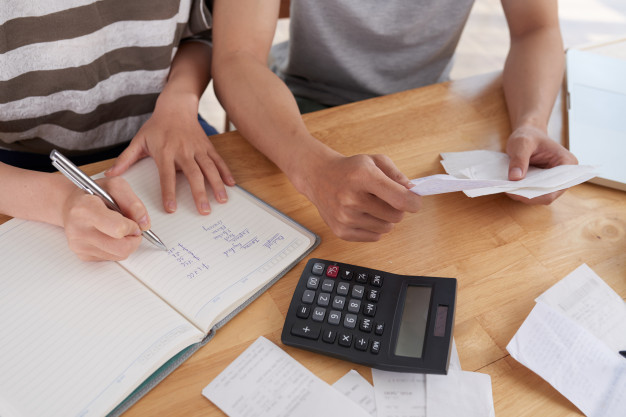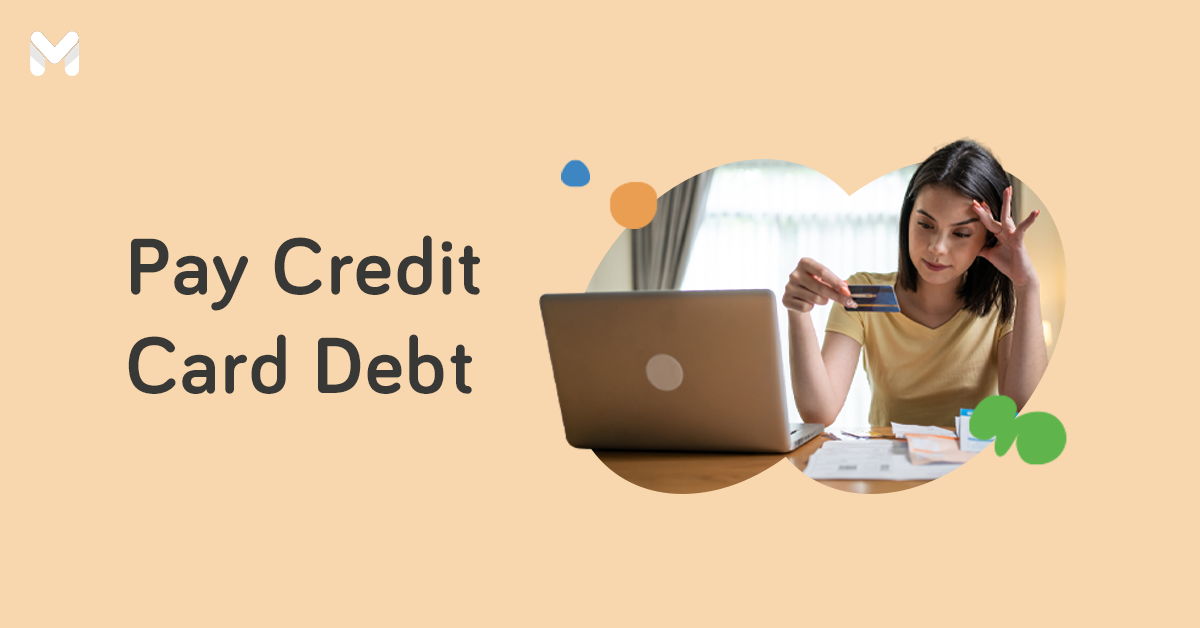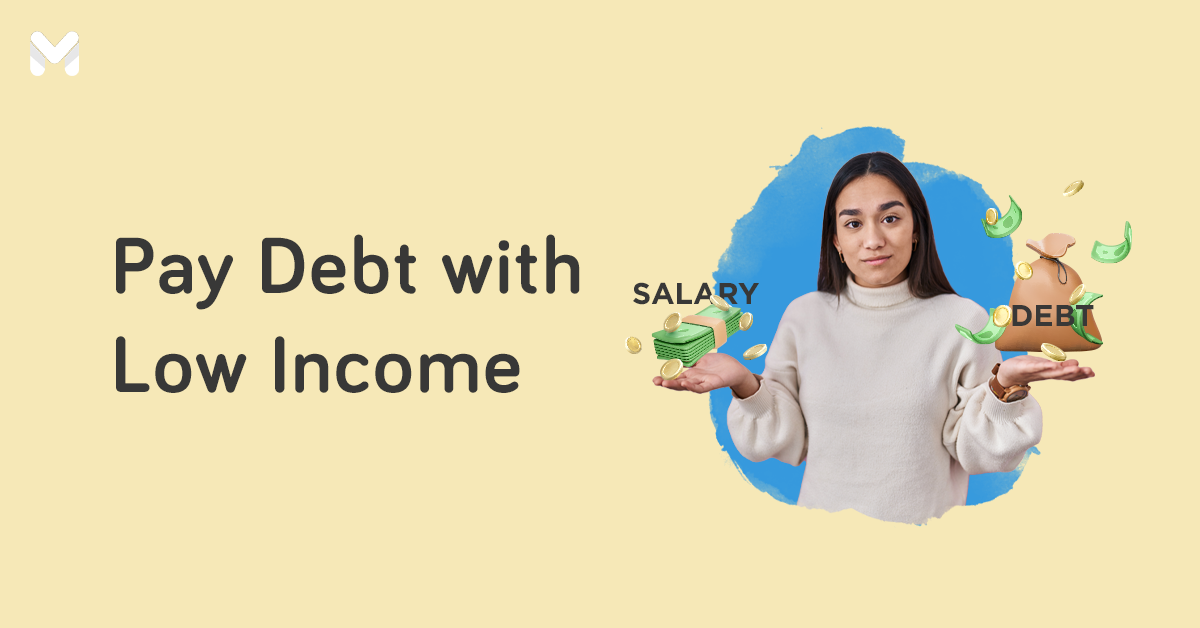The pandemic—and the inflation that followed hot on its heels—taught us a lot of lessons, one of which is the fact that you can't always prepare for everything life throws at you. Due to medical expenses and unemployment, plenty of Filipinos were forced to borrow money just to make ends meet.
Now that the country is slowly trying to get back on its feet, it's time to map out your financial goals and enjoy the benefits of a life free of debt. After all, nobody knows if or when we’ll be facing yet another crisis. Pay back your debts as soon as you can so you can start with a clean slate and rebuild your depleted savings.
What is the Difference Between Good Debt and Bad Debt?
Debt is debt no matter how you describe it. Debt means you borrowed money, which should be returned to the lender accordingly.
However, there are two types of debt. Good debt refers to money borrowed for funding investments or other things that could benefit you in the long run. Bad debt, on the other hand, is money borrowed to pay for purchases that depreciate in value.
An example of good debt is a personal loan used to pay for your child’s tuition. You borrow money to invest in your child’s education, which will benefit them in the years to come.
You can also boost your income with good debt. Some people apply for short-term loans to fund small businesses. A few also borrow money to pay for classes that could boost their skills, giving them an edge when applying for high-paying jobs.
Bad debts don’t offer the same benefits as good debts. Bad debts sometimes result from impulse buying or bad spending habits. If you fail to plan for emergencies and resort to high-interest loans out of desperation, that's also considered a bad debt.
In times of crisis, it's nearly impossible to avoid debts. However, financial experts don’t encourage repeated loans, especially if your income can’t cover your debt repayments. Always do the math before taking out a loan.
Should You Pay Your Debt, Save, or Invest?

The road to a life free of debt is not easy. You might hardly earn enough cash, and even if you do, you’re often caught between investing it, saving it, or settling your debt.[1]
Confused about which of these choices is the better option? Here are a few situations to consider:
Situation 1: Pay Your Debt First If the Interest and Fees are High
If you've got a loan with a high interest rate, then use your extra cash to pay it off, rather than deposit the money in a savings account that earns only as much as 0.025%.
Let's say you have a short-term loan of ₱5,000 with an interest rate of 10% or an interest of ₱500 per month. You also have a savings account that lets you earn only 0.025% per month or ₱1.25. Use your money to pay off the loan so that you won’t have to pay the ₱500 interest.
Situation 2: Save the Money If You’re on a Fixed-Interest Loan Agreement
A fixed-interest loan agreement is a loan with consistent interest charges for the entire loan duration. This means the fees don't change even if you pay them in advance, unless you pre-terminate the loan and pay the balance in full. In this case, the better option is to save the money and wait for the due date of your monthly installments.
Situation 3: Invest If the Potential Return is Higher
What's the difference between investing and saving? With investing, you can grow your money faster than letting it just sit in the bank. Through practical investments such as small businesses, real estate, and bonds, you can earn more.
If the potential return from investing your money is higher than the earnings on your savings account or the interest on your loan, then you're better off using your money for investment. This is especially true if you don't need the amount at the moment and want to achieve a long-term financial goal.

Reminder: Set Up Your Emergency Fund, Too
Just note that while paying off your debt is crucial, having enough money for rainy days is just as important. An emergency fund need not be huge chunks of your paycheck stashed away.
Consider building your savings even while you devote most of your extra money to paying off debt, as it will help reduce any dependency on credit cards or loans should you go through a rough financial patch. With an emergency fund, you can avoid any other debt traps in the future.
Why Should You Start Paying Your Debts: 5 Benefits When You Become Free of Debt
Whether you have a good or a bad debt, aim to pay it off as soon as you can. Here's why you should aim for a life free of debt.
✔️ Being Debt-Free Gives You Peace of Mind

Imagine hiding from that old friend from whom you borrowed a few thousand pesos years ago. You can’t mingle with mutual friends or even join the same group chat as her.
Worse, you toss and turn at night wondering who else knows about your debt and what they’re saying about you. Peace of mind is a privilege only those free of debt can enjoy.
✔️ You Can Plan for the Future
One of the advantages of being debt-free is getting a chance to focus on future goals. Instead of worrying about your due date, you can start saving for your dream house. You can set aside money for renovations or a mortgage downpayment.
Without debts to worry about, you can make your dreams come true.
✔️ You Can Start an Emergency Fund
Instead of using it for debt repayments, you can save your money to secure your family’s future. You can even pay for your loved ones’ health insurance plans.
✔️ You Can Start Owning Assets

Nothing is impossible for someone who has responsibly settled their financial accountabilities. If you’re debt-free, you can save your extra money to buy a property or a vehicle. You can start exploring opportunities and assets.
✔️ Being Debt-Free Improves Your Credit Score
A high credit score gives lenders confidence in you as a borrower, increasing your chances of getting approved for future loans. One of the benefits of being debt-free is that you’ll never have to worry about being declined for a car loan or a housing loan.
How to Achieve a Debt-Free Lifestyle
First, you should understand that the journey to becoming free of debt starts with your acceptance of the situation and your determination to get out of it quickly.
Once you’ve accepted your obligations, it's time to follow these simple steps.
👉 List Down All Your Debts

The list should include the due dates, interest rates, and fees. Start by rearranging your budget and prioritizing one debt after the other. Pay off the largest debts as soon as you can, since the cost of interest is ultimately what makes your debts balloon over time.
👉 Apply for Balance Transfer or Debt Consolidation
Debt consolidation and balance transfers offer lower interest rates than regular loans. Shop for credit cards that offer 0% interest on balance transfer transactions. You can also apply for personal loans to consolidate all your debts into a single account.
👉 Look for Ways to Earn Additional Income
The online world has opened a lot of opportunities for different skill sets. To earn extra money, evaluate your skills and look for online gigs.
You don’t need a unique talent to get hired. A simple typing job or a virtual assistance task can ease your financial burden. Look for ways to pay debts even when your income is low.
👉 Live Within Your Means
This sounds like a cliché, but living within your means can work wonders on your finances. Spend way lower than what you earn and make enough room for loan repayments. Avoid the urge to spend on things you don't need.
Always plan your purchases and make sure you don't buy more than what you can afford.
Read more:
- Ask Moneymax: I Can’t Pay Off My Debt. What Should I Do?
- Until “Debt” Do Us Part? What You Should Know If You Married Someone with Debt
Final Thoughts
Becoming free of debt is not a walk in the park—it's a choice. You can read lots of articles on the benefits of debt-free living and how to get out of debt, but it all boils down to discipline.
Zero debt gives you financial freedom and security, which could transform your life and the lives of the people you love.

Source: [1] Should I Pay off Debt or Invest Extra Cash? (Investopedia, 2021)







.png)

